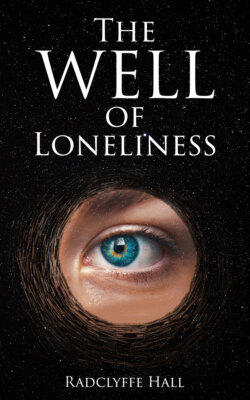Читать книгу The Well of Loneliness - Radclyffe Hall - Страница 11
На сайте Литреса книга снята с продажи.
3
ОглавлениеCollins became more affectionate after the incident of the housemaid’s knee; she could not but feel a new interest in the child whom she and the cook had now labelled as ‘queer,’ and Stephen basked in much surreptitious petting, and her love for Collins grew daily.
It was spring, the season of gentle emotions, and Stephen, for the first time, became aware of spring. In a dumb, childish way she was conscious of its fragrance, and the house irked her sorely, and she longed for the meadows, and the hills that were white with thorn-trees. Her active young body was for ever on the fidget, but her mind was bathed in a kind of soft haze, and this she could never quite put into words, though she tried to tell Collins about it. It was all part of Collins, yet somehow quite different—it had nothing to do with Collins’ wide smile, nor her hands which were red, nor even her eyes which were blue, and very arresting. Yet all that was Collins, Stephen’s Collins, was also a part of these long, warm days, a part of the twilights that came in and lingered for hours after Stephen had been put to bed; a part too, could Stephen have only known it, of her own quickening childish perceptions. This spring, for the first time, she thrilled to the cuckoo, standing quite still to listen, with her head on one side; and the lure of that far-away call was destined to remain with her all her life.
There were times when she wanted to get away from Collins, yet at others she longed intensely to be near her, longed to force the response that her loving craved for, but quite wisely, was very seldom granted.
She would say: ‘I do love you awfully, Collins. I love you so much that it makes me want to cry.’
And Collins would answer: ‘Don’t be silly, Miss Stephen,’ which was not satisfactory—not at all satisfactory.
Then Stephen might suddenly push her, in anger: ‘You’re a beast! How I hate you, Collins!’
And now Stephen had taken to keeping awake every night, in order to build up pictures: pictures of herself companioned by Collins in all sorts of happy situations. Perhaps they would be walking in the garden, hand in hand, or pausing on a hill-side to listen to the cuckoo; or perhaps they would be skimming over miles of blue ocean in a queer little ship with a leg-of-mutton sail, like the one in the fairy story. Sometimes Stephen pictured them living alone in a low thatched cottage by the side of a mill stream—she had seen such a cottage not very far from Upton—and the water flowed quickly and made talking noises; there were sometimes dead leaves on the water. This last was a very intimate picture, full of detail, even to the red china dogs that stood one at each end of the high mantelpiece, and the grandfather clock that ticked loudly. Collins would sit by the fire with her shoes off. ‘Me feet’s that swollen and painful,’ she would say. Then Stephen would go and cut rich bread and butter—the drawing-room kind, little bread and much butter—and would put on the kettle and brew tea for Collins, who liked it very strong and practically boiling, so that she could sip it from her saucer. In this picture it was Collins who talked about loving, and Stephen who gently but firmly rebuked her: ‘There, there, Collins, don’t be silly, you are a queer fish!’ And yet all the while she would be longing to tell her how wonderful it was, like honeysuckle blossom—something very sweet like that—or like fields smelling strongly of new-mown hay, in the sunshine. And perhaps she would tell her, just at the very end—just before this last picture faded.
